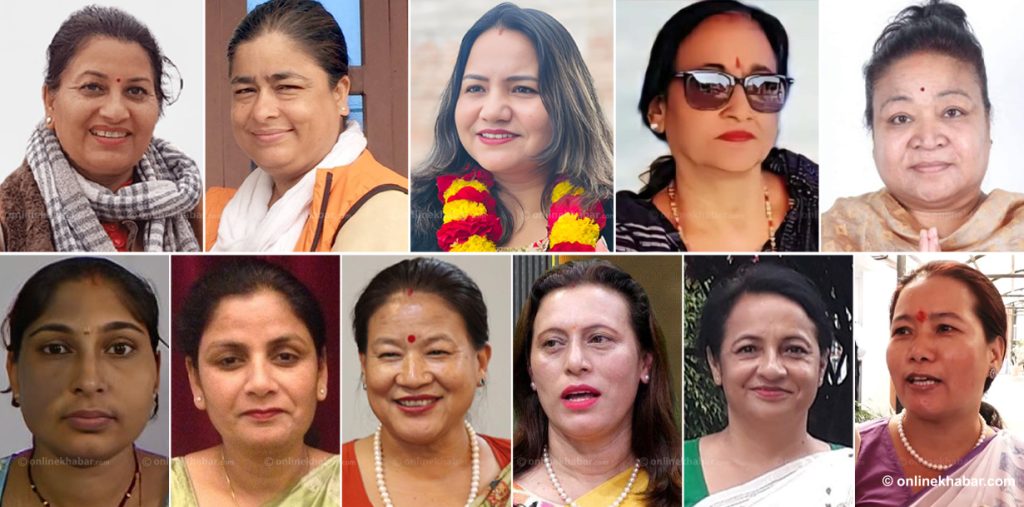
In rural Nepal, remittances provide a lifeline for households. From school fees to medical expenses and household sustenance, everything is reliant on the remittances women receive from their partners/spouses/sons working abroad. Yet, behind every remittance received is a mother, daughter, wife or sister who carries the burden of managing it all herself, in the absence of the male partner. Seeing them as unsung economic stewardesses is not far from reality; a quarter of Nepal’s GDP is from the remittance inflows. But what if these remittances were more than just for managing daily life? What if they offered more than just survival, but opportunities for a future for these women? What if a part of them were used as startup capital?
Across provinces, thousands of rural women cope with the emotional and economic pressures of being left behind. Uncertain futures, waiting for remittances to arrive and meeting increasing costs of living are what these women grapple with every day, every month. But what if they could turn this difficult set of circumstances into real economic agency? After all, their experiences of living in resource constraints and a real sense of uncertainty are not dissimilar to the entrepreneurial experience. They are resilient, they are hardened by their circumstances, but with training and structured support, they can turn into entrepreneurs, not just passive recipients of remittances.
There is a huge missed opportunity here- not just for the women but also for the broader gender and economic empowerment agenda in Nepal.
The hidden power of the left-behind women
Nearly 24% of Nepal’s GDP comes from remittances. But most of it goes into household consumption. Women who manage the incoming remittances have proven their ability for economic stewardship. With access to market and entrepreneurial skills development, they could transform themselves into change makers and community leaders.
Research shows that when women are financially empowered, it increases their social agency and power to make independent decisions. Nepal’s Left-Behind women who are managing their households already have the two key traits of confidence and leadership, and adding entrepreneurial training will turn them into social champions.
Current context and a missing link
Numerous programs focus on women’s entrepreneurship in Nepal, including IOM Nepal, CARE Nepal, and UNDP’s Micro-Enterprise Development Programme MEDEP. All these and more are supporting thousands of women with financial literacy training, skills in business and much more.
But these are targeted to returning migrants or youth, not the Left-Behind women in charge of households. The latter group does not lack any potential, but is not visible to the many development initiatives and therefore, underrepresented in the entrepreneurial ecosystems.
Women’s economic empowerment to generational progress
Nobel Laureate Esther Duflo says that women’s empowerment and economic development are mutually reinforcing. When women are empowered and they control the earnings, they invest more in their children’s health and education.
This is of critical importance in Nepal’s remittance economy. A women who is financially independent is more likely to support her children’s education, health outcomes and be an inspiration for her daughters and sons alike to pursue their dreams. This pattern is seen to be repeating across many similar economic contexts- from Brazil to Bangladesh to parts of Sub Saharan Africa. The message is clear- investing in women creates generational benefits.
The digital window
Technology presents an opportunity here. In 2023, Nepal’s digital penetration stood at 135% with more than 65% of rural women owning and using a mobile phone with over 40% using mobile internet for banking or business.
Tools such as eSewa, Khalti and WhatsApp create pathways to remote women-led businesses. They also offer access to markets and training potential. These women are already using these tools for their daily lives- it now needs to be escalated to applications for their entrepreneurial journeys.
What do we need to do?
Targeted interventions are needed to bring the Left-Behind women to receive entrepreneurial support. Current initiatives target mostly returning migrants.
- Left-Behind women need to be identified as a distinct group in entrepreneurial strategies.
- Basic digital and business literacy training to be enhanced over and beyond the technical skills in using digital tech.
- Peer networks and mentorship is critical to the success of women’s entrepreneurship.
- Policy recognition of this demographic as a distinct group to be invested in.
This is not just about equity- they are about tapping into a group of entrepreneurial individuals who shoulder tremendous responsibilities.
The bright alternative future
Imagine a woman in Nawalparasi. Her husband works in the Gulf and sends money home. She uses part of the remittance to run a home-based tailoring business, employing 3 other women and training others in her community. She uses her mobile telephone to connect to markets and slowly builds up her entrepreneurial prowess. Her two young daughters and one little boy grow up watching her be the strength of the family and the community around her. This is what real potential looks like, if we choose to notice it and support it.
Nepal has long exported its migrant labour. It has also, perhaps unintentionally, allowed a generation of women who are experts in managing the limited remittances to run their households and weather the continuing economic uncertainty. They are entrepreneurs hiding in plain sight! They do not need be passive recipients, they need training and an opportunity to be the change makers.
— Sukanya Ayatakshi-Endow, Edwin van Teijlingen, Pramod Regmi and Rashmee Rajkarnikar
(All the authors are academician and researcher)
























